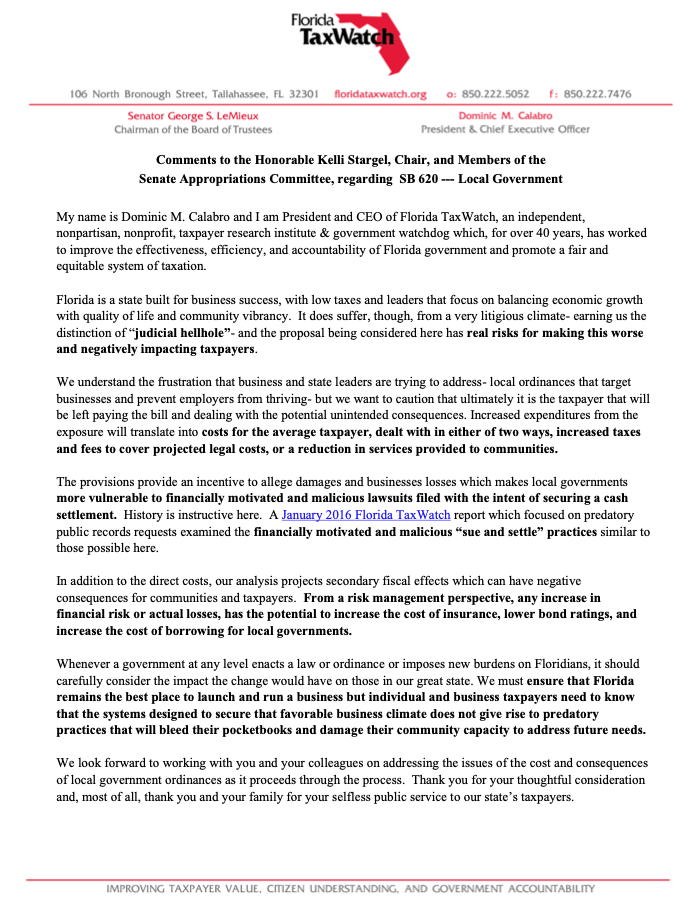Comments to the Honorable Kelli Stargel, Chair, and Members of the Senate Appropriations Committee Regarding SB 620: Local Government

My name is Dominic M. Calabro, and I am President and CEO of Florida TaxWatch, an independent, nonpartisan, nonprofit, taxpayer research institute and government watchdog which, for over 40 years, has worked to improve the effectiveness, efficiency, and accountability of Florida government and promote a fair and equitable system of taxation.
Florida is a state built for business success, with low taxes and leaders that focus on balancing economic growth with quality of life and community vibrancy. It does suffer, though, from a very litigious climate – earning us the distinction of “judicial hellhole” – and the proposal being considered here has real risks for making this worse and negatively impacting taxpayers.
We understand the frustration that business and state leaders are trying to address- local ordinances that target businesses and prevent employers from thriving- but we want to caution that ultimately it is the taxpayer that will be left paying the bill and dealing with the potential unintended consequences. Increased expenditures from the exposure will translate into costs for the average taxpayer, dealt with in either of two ways, increased taxes and fees to cover projected legal costs, or a reduction in services provided to communities.
The provisions provide an incentive to allege damages and businesses losses which makes local governments more vulnerable to financially motivated and malicious lawsuits filed with the intent of securing a cash settlement. History is instructive here. A January 2016 Florida TaxWatch report which focused on predatory public records requests examined the financially motivated and malicious “sue and settle” practices similar to those possible here.
In addition to the direct costs, our analysis projects secondary fiscal effects which can have negative consequences for communities and taxpayers. From a risk management perspective, any increase in financial risk or actual losses, has the potential to increase the cost of insurance, lower bond ratings, and increase the cost of borrowing for local governments.
Whenever a government at any level enacts a law or ordinance or imposes new burdens on Floridians, it should carefully consider the impact the change would have on those in our great state. We must ensure that Florida remains the best place to launch and run a business but individual and business taxpayers need to know that the systems designed to secure that favorable business climate does not give rise to predatory practices that will bleed their pocketbooks and damage their community capacity to address future needs.
We look forward to working with you and your colleagues on addressing the issues of the cost and consequences of local government ordinances as it proceeds through the process. Thank you for your thoughtful consideration and, most of all, thank you and your family for your selfless public service to our state’s taxpayers.